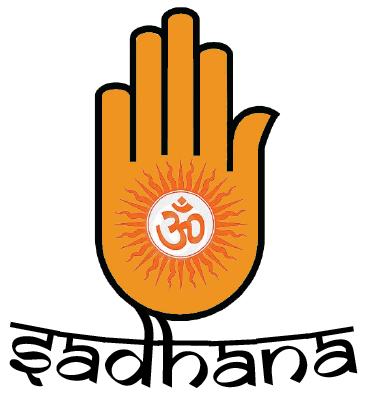Hindu Liberation Theology Reading Group
Are you interested in exploring questions about social justice from Hindu perspectives? Would you like to discover what resources Hindu traditions offer for thinking about oppression and liberation? Do you want to learn more about different ways Hindus have struggled against injustice and advocated for peace in the past?
Since April 2021, Sadhana has hosted a monthly virtual reading group to explore these questions through the lens of liberation theology. This reading group is for Hindu youth and adults (16+) who are interested in learning more about Hindu traditions and liberation theology. You do not need to be an expert - we welcome people who are just learning about this topic!
Liberation theology urges us to think about individual liberation in relationship to social liberation. Different liberation theologies have developed in Christianity, Islam, Hinduism, and other religions - but all fundamentally agree that we have a spiritual commitment to uplift the poor and the oppressed. This reading group will explore what liberation theology looks like in theory and practice for Hindus today.
Write to us at info@sadhana.org if you’re interested in joining this reading group.
Past readings
April 4, 2021: What is Liberation Theology?
Main Reading: Miguel A. De La Torre. "Introduction." In The Hope of Liberation in World Religions, ed. Miguel de la Torre (Baylor University Press, 2008): 1-12.
Primary Sources: Bṛhadāraṇyaka Upaniṣad, Chokhamela abhang, Akka Mahadevi vachana
May 2, 2021: Reimagining Hindu Traditions in the Diaspora
Main Reading: Paula Richman, “The Ramlila Migrates to Southall.” In Questioning Ramayanas: A South Asian Tradition, ed. Paula Richman (Berkeley: University of California Press, 2001), 309-328.
Primary Sources: Bollywood song, Vijaya Dabbe poem
June 6, 2021: The Origins of Liberation Theology
Main Reading: Rosemary Radford Ruether, “Latin American Liberation Theologies.” In The Hope of Liberation in World Religions, ed. Miguel de la Torre (Baylor University Press, 2008): 13-34.
Primary Sources: Eunice de Souza poem, Kabir poem
July 11, 2021: Liberation Theology Through Advaita Vedanta
Main Reading: Anantanand Rambachan, “Hinduism.” In The Hope of Liberation in World Religions, ed. Miguel de la Torre (Baylor University Press, 2008): 113-129.
Primary Sources: Excerpt from B.R. Ambedkar’s Annihilation of Caste, Bhagavadgita verse, Basavanna vachana
August 1, 2021: Bhakti Traditions and Gender
Main Reading: Excerpts from Vasudha Narayanan, “Bhakti.” In Brill’s Encyclopedia of Hinduism Online, edited by Knut A. Jacobsen, Helene Basu, Angelika Malinar, Vasudha Narayanan.
Introduction
The Received Narrative on the Spread of Devotion
The Spread of Bhakti
Women Bhaktas
Primary Sources: Andal poem, Meerabai bhajan, Janabai abhang, Kamala Das poem
October 3, 2021: Bhakti Traditions and Caste
Main Reading: Christian Lee Novetzke, “Namdev.” In Brill’s Encyclopedia of Hinduism Online, edited by Knut A. Jacobsen, Helene Basu, Angelika Malinar, Vasudha Narayanan.
Primary Sources: Namdev abhang, Kazi Nazrul Islam song, Bhagat Kanwar Ram song
November 14, 2021: Critical Interpretations of Hindu Festivals
Main Readings:
Pradnya Waghule, Reading Caste In Holi: The Burning Of Holika, A Bahujan Woman. Feminism in India, March 13, 2017.
Anantanand Rambachan, Holi: Speaking Truth to Power
Radhika Borde, The Asurs through Their Myths: Celebrating Iron and the Anti-Heroes of the Hindu Epics, from Brill’s Encyclopedia of the Religions of the Indigenous People of South Asia Online
Primary Sources: an Instagram comic, Sanskrit verses on Durga, and a Hindi film song
December 14, 2021: Sree Narayana Guru
Main Readings:
George Pati, Sree Narayana Guru, from Oxford Bibliographies in Hinduism.
P. Chandramohan, Religious Reforms and Narayana Guru. From Developmental Modernity in Kerala (Columbia University Press, 2016): 63-70.
Primary Source: Canto Two of the Narayana-Smriti
February 6, 2022: Love and Liberation Theology Through Buddhism
Main Reading: bell hooks, All About Love: New Visions (New York: HarperCollins, 2000).
Chapter 1: Clarity: Give Love Words
Chapter 5: Spirituality: Divine Love
Primary Sources:
March 27, 2022: Caste, Reform, and Śrīvaiṣṇavism
Main Reading: Katherine Young, Turbulent Transformations: Non-Brahmin Śrīvaiṣṇavas on Religion, Caste and Politics in Tamil Nadu (Orient BlackSwan, 2021)
Primary Sources: Verses of the Āḻvārs: Tiruppāṇ Āḻvār, Āṇḍāḷ, Nammāḻvār
May 15, 2022: Caste and the Ramayana
Ramdas Lamb, "Personalizing the Ramayan: Ramnamis and Their Use of the Ramcaritmanas." In Many Ramayanas: The Diversity of a Narrative Tradition in South Asia, ed. Paula Richman. (1991: University of California Press) p. 236-251
Kuvempu, "Transforming a Brahmin: Shudra Tapasvi (excerpt)." In Ramayana Stories in Modern South India: An Anthology, ed. Paula Richman (2008: Indiana University Press) p. 119-134
June 19, 2022: Queerness and Hinduism
Main Readings:
Anantanand Rambachan, “Liberation from Homophobia.” In A Hindu Theology of Liberation: Not-Two Is Not One. SUNY Press, 2014.
First-person reflections from July 1996 edition of Trikone magazine
Sandip, “Editorial”
Arvind Kumar, “Many Branches on One Tree: Reflections on Vedanta, Homosexuality and Swami Chinmayananda”
Munia, “So You Guys Worship Cows? A queer woman ponders being Hindu in America”
Primary Sources: Poems by Basavanna, Muttusvami Dikshitar, Anish Kumar, and Jaya
